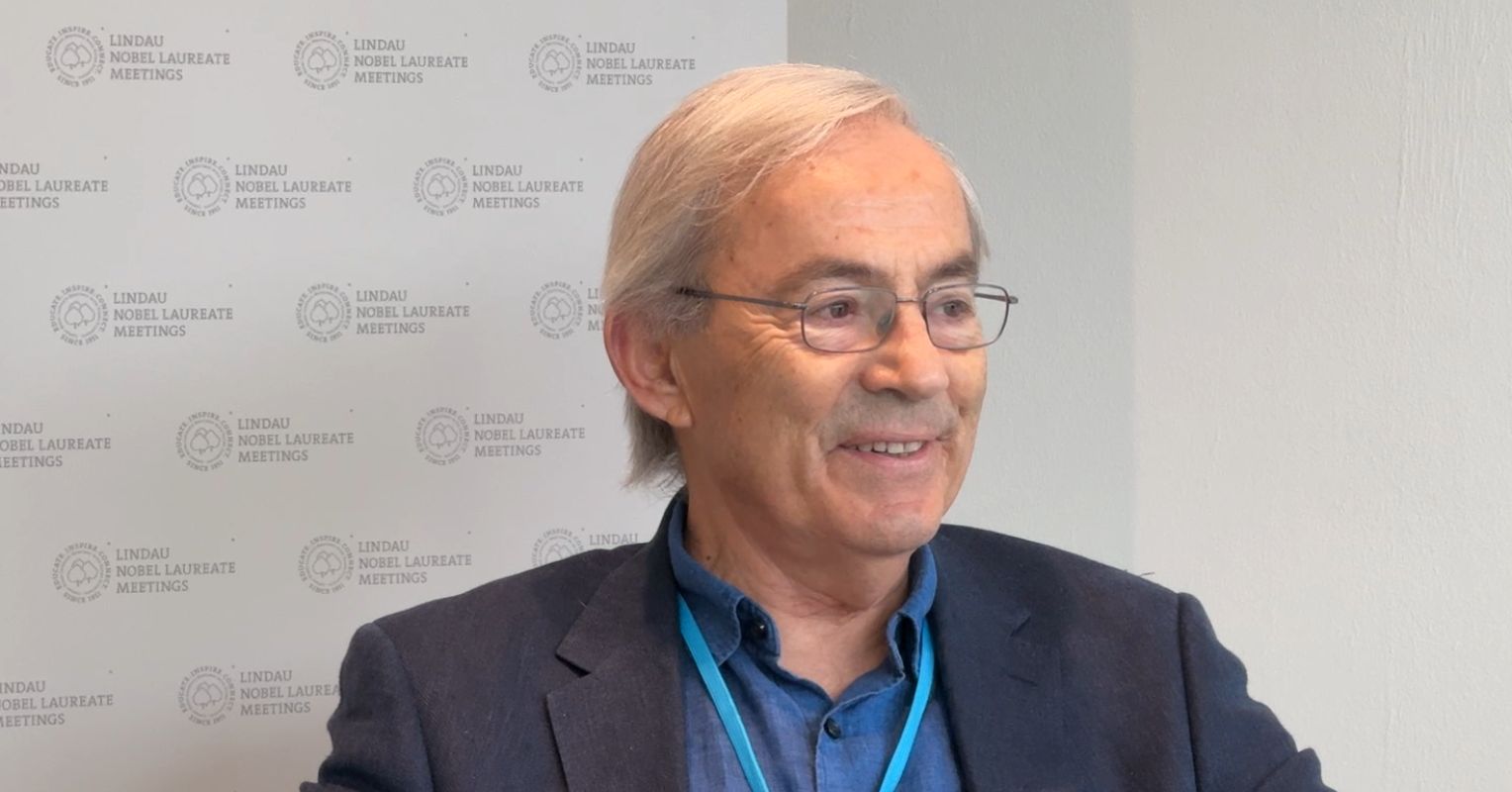
A Nobelist's Formula for Managing AI Anxiety
作者:Online: www.alishehab.com, Facebook, X, Bluesky, LinkedIn, Instagram, TikTok
Sir Christopher Pissarides was awarded a Nobel Prize in 2010 for his work on economic "frictions," or market inefficiencies. These days, he's focused more on new mental frictions rather than market ones. According to surveys conducted by his group at the London School of Economics, uncertainty is the main source of stress.
"A stressed worker cannot perform well," Pissarides told me during the Lindau Nobel Laureate Meeting. Paradoxically, his research suggests that new AI tools may be beneficial, but the constant pressure to adapt is having a devastating impact. According to him, "[People] are feeling worse off," causing not only stress but absenteeism and overall dissatisfaction with the location where we spend the majority of our waking hours. Yet, our well-being is the key to understanding AI.
The New Workplace Frictions Are Psychological
"The fact that they have to learn new things that they are not so sure about" along with unclear corporate policy are significant sources of stress for employees. Both performance and mental health suffer as a result of the psychological threat response brought on by this ongoing change. This fits well with the idea of technostress, which studies have linked to lower levels of job satisfaction and higher rates of burnout.
Modern workplace transformations, particularly the introduction of information and communication technologies, have created new psychological frictions that significantly impact employee well-being. Arnetz & Wiholm (1997) reported that employees in high-technology environments experience psychosomatic symptoms related to high perceived mental demands combined with insufficient skills and predicted that such syndromes will increase due to rapid workplace changes. The technological changes create organizational stress by challenging employees' cognitive resources while potentially increasing control and pressure (Agénor, 2000).
The Socratic Secret to Rational Decisions
Perhaps surprisingly, Pissarides' approach to handling today's uncertainty is based on ancient Greek philosophy. "Before I call, I take my time," he says. "I tend to be quite patient." He uses Socrates's well-known admission that "the only thing I know is that I know nothing" as his guiding principle. "Inquiry, exploration, and subsequent action gradually increase one's knowledge."
The Socratic method of humility is a powerful mental health tactic. In an era that prioritizes quick fixes, the capacity to sit with ambiguity, ask questions, and admit ignorance is a form of cognitive resilience. Reducing the pressure to be perfect in a world that is constantly changing is the aim.
Etzioni (1989) describes "humble decision-making" as an adaptive approach that allows proceeding with partial information while maintaining flexibility to adjust as new information becomes available; this is in contrast to traditional rational decision-making models that require comprehensive knowledge. In therapeutic contexts, the Socratic method has been integrated into cognitive behavioral therapy, where guided questioning helps clients examine and challenge maladaptive thoughts and beliefs (Eliud, 2025). Research indicates that Socratic questioning significantly reduces depression from session to session, particularly for patients with a pessimistic cognitive bias (Overholser & Beale, 2023).
The Unseen Value of the Coffee Chat
Pissarides also points to a more profound risk of AI: social isolation. As remote work and AI-mediated communication increase, we lose the “informal social interaction at work that we know is increasing well-being.” His research identifies a critical distinction. Employees don’t like formal, high-pressure summons to the boss’s office. What they crave is the informal chat: “the boss saying, ‘oh, come and have a coffee with me; let's have a chat about things generally.’”
This isn’t a minor point; it’s everything.
Eling (2025) warns that over-reliance on AI-driven social interactions, while offering some emotional support, may disrupt real-world social bonding and human companionship patterns. Albano et al. (2019) highlight that smartworkers face reduced face-to-face interactions—and that negatively impacts professional identity as well as sense of community.
Why Culture Must Inform Rules
Effective leadership isn’t about imposing rigid rules, says Passarides, it’s about understanding culture. “You need to design rules that fit in with the culture of the place. If you ignore the culture, your rules are not going to be obeyed, or they might be obeyed in a way that they are unproductive.”
The lesson for well-being is clear. Top-down, one-size-fits-all mandates for AI adoption will likely fail and increase stress. A more effective approach is a targeted policy that considers the human element—how employees interact, what they fear, and what they need to feel supported.
References
Pissarides, C. (2025). Personal Interview. Lindau Nobel Laureate Meetings.
Arnetz, B. B., & Wiholm, C. (1997). Technological stress: Psychophysiological symptoms in modern offices. Journal of Psychosomatic Research, 43(1), 35–42. https://doi.org/10.1016/s0022-3999(97)00083-4
Agénor, P. (2001). The economics of adjustment and growth. Journal of Macroeconomics, 23(2), 316. https://doi.org/10.1016/s0164-0704(01)80012-4
Etzioni, A. (1989). Humble decision making. Harvard Business Review, 67 4, 122-6 .
Eliud, O. (2025). Socratic method as a therapeutic discourse for mental health. Diagnostics and Therapeutics, 1–9. https://doi.org/10.55976/dt.4202513231-9
Overholser, J. C., & Beale, E. (2023). The art and science behind socratic questioning and guided discovery: a research review. Psychotherapy Research, 33(7), 946–956. https://doi.org/10.1080/10503307.2023.2183154
Eling, F. (2025). The Psychological Impact of Digital isolation: How AI-Driven Social interactions Shape Human Behavior and Mental Well-Being. International Journal of Research and Innovation in Social Science, IX(IV), 3697–3705. https://doi.org/10.47772/ijriss.2025.90400265
Albano, R., Parisi, T., & Tirabeni, L. (2019). Gli smart workers tra solitudine e collaborazione. DOAJ (DOAJ: Directory of Open Access Journals). https://doi.org/10.13128/cambio-24960
关于《A Nobelist's Formula for Managing AI Anxiety》的评论
发表评论
摘要
相关讨论
- telecommunication jobs at freelance marketplace
- Google Code shutting down
- Icon设计美国区被批,请熟悉美国文化的同学帮忙看看Icon的设计问题在哪儿。
- [上海] Wiredcraft 招聘Javascript CSS前端开发;Node.js Golang Python后端开发程序猿!还有QA Tester;DevOps;项目经理等职位等你来投!!
- Global Recycled Polyester Staple Fiber Market Booms Amid Growing Demand for Sustainable Textiles
